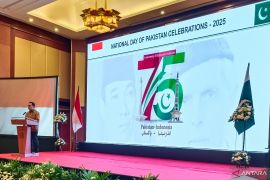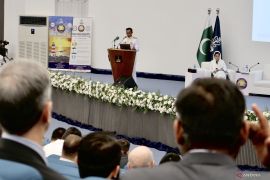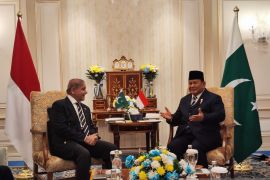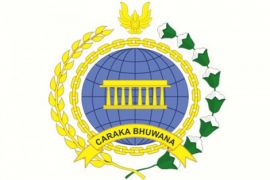The bombers struck outside the shrine of the 13th century Sufi saint Ahmed Sultan, popularly known as Sakhi Sarwar, in Dera Ghazi Khan district.
Hundreds of worshippers had gathered at the shrine for a religious ceremony when the attacks took place.
"We have recovered 41 bodies so far," said the officer, Zahid Hussain Shah, adding that more than 70 were wounded.
"Both were suicide attackers, they came on foot and blew themselves up when police on duty stopped them."
Many of those wounded in the attack were in a serious condition, he said, and the injured have been taken to the Dera Ghazi Khan hospital for treatment.
Regional police chief Ahmed Mubarak also confirmed two suicide bombers tried to enter the shrine but failed and blew themselves up.
A police official, requesting anonymity, said the shrine had received threats from unidentified militants.
Sufi worshippers, who follow a mystical strain of Islam, have increasingly been the target of bloody attacks by Islamist militants in Pakistan.
No group has immediately claimed responsibility for the attacks, but Sunni extremists, including the Taliban, are vehemently opposed to the Sufi strand of Islam and consider their shrines to be idolatrous.
A bomb blast outside the popular shrine of the 12th century saint, Baba Farid, also known as Ganjshakar in the Punjab town of Pakpattan, killed four people, including women, in October last year.
The Pakpattan site is the second most popular Sufi shrine after the Data Darbar shrine in the eastern city of Lahore, where two suicide bombers blew themselves up among crowds of worshippers in July last year, killing 42 people.
On October 7, two suicide bombers blew themselves up at a Sufi shrine of Abdullah Shah Ghazi in Karachi, killing nine worshippers, including two children.
More than 4,150 people have been killed in suicide attacks and bomb explosions, blamed on homegrown Taliban and other Islamist extremist networks, since government troops stormed a radical mosque in Islamabad in July 2007. (*)
Editor: Kunto Wibisono
Copyright © ANTARA 2011











